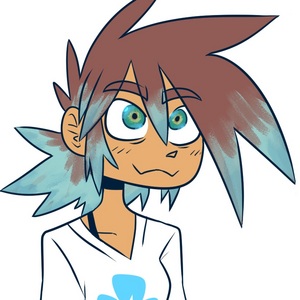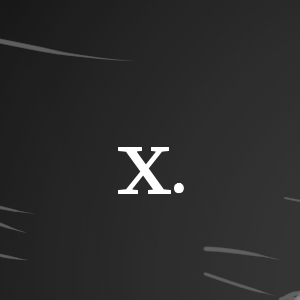THE PAST
The golden rule does smother
our failures do anoint
but to bring harm to another
is opposite the point
our blades are forged for brothers
and sisters in dire need
to carve themselves a path to walk
in bogs of thicket reed
and if a beast approaches
you let it show its fangs
before you plunge your sword
or tie it up to hang
But this beast has no face
no fangs with which to speak
invisible, contented with
its deeds and havoc wreaked
on other beasts it travels
on small ones in distress
in buckets nearly emptied
in sweat in every dress
impossible to skewer
inconceivable to noose
inner beast of humans
gave channels far and loose
Now faces grieve as skeletons
their mouths dry, caked in sick
their stomachs do betray them
their touch is but a prick
they pile in the streets across
they curdle in their homes
they rot into the ground below
the swarms now freely roam
but I have heard a stranger tale
that manners can defeat them
what weapon is a fork and spoon
and how a dish is eaten?
What magic bubbles sick away
what makes us clean again
what covered can our voices say
what air can we take in?
and if none heed the call,
to make safe what makes sick,
they close their ears to good advice,
skull made home for plague like brick
yet trial afar, it seems to work
though I can't understand
what separates the ones who make it
and those who stone does brand.
* * *
It took several days on a moon, but we rode to a port city on the east side of the isle. The jockey parked his horses and carriage in a friend's barn, and I helped him load cargo onto a ship to sail for Britain. Where we came from was empty and sad, fog rolling into bare streets nary tracked by wheel, foot, nor horseshoe. Most of the city's folks were in wheelbarrows. I was given a pinch of tobacco from a sailor's pipe, something from the New World. It lit my head on fire, and my chest, but the pain subsided and I felt pleasant. My focus hardened, and I was able to notice the tiny details in glittery grey seawater, the sway of reeds on the bank, and the peculiar way fog billowed into the lower decks like a cloud of menacing sadness. That, and I could see how damn ugly all the sailors were. Faith in all fuck, these men were hairy, nasty, and destitute, and their smell killed all conversation. What parts of them I was blind to on others were stitched and scarred on them, and I found it almost easy to tell them apart by the grotesque ways in which they'd been mutilated. I retreated to the barracks to sleep, and counted nicks and lines in the floorboards above me until I fell asleep.
I woke up feeling as burnt as a torch, at the docks of a town called Stadtport. I was almost carried back the other way as I rushed to the upper deck and leapt from the ship to a post, then to another post, and finally to the docks. A nearby man commended my agility, but in truth, it was a fluke in the heat of rush. I was glad to have fallen asleep with all of my gear on, my scythe firm in hand.
Stadtport was open-skied and sprawling, but sick to its core. Folks wandered the streets looking for something to blame their woeful boils on, feverish and confused. I was feeling strained in my stomach, but they were gaunt and drained. Something was sucking the very life from them. The smell was fishy, putrid vomit, and the air was warm and thick in all the wrong ways. They noticed I was a little different by fashion, and began chucking rocks at us sailors and travelers.
They yelled, "This is your fault, go home!"
"Get out, you bloody foreigners!"
I was pelted by pebbles, and I didn't mind. Then, a sharp piece of flint bounced off my brow, deflected only by a tuft of my hair and my hood. My bone stung like a knife, and I felt blood trickle down my face. The other men didn't care, the rocks finding them like mountains. I was scared, hurt, and angry. I ran from the unbothered sailors and the bothered mob, and down a few alleys, past children in rags eating flame-crisped rats. I found myself in a clearing, gridded with stones. Then, it struck me: not a rock, but a memory. This is where we buried my father, next to his parents. I was only a child, and I must have forgotten the trip. We'd boarded The King's own ship, tagging along on a mission to supposedly purchase canvas art from a local painter. It felt like we'd blinked out of town in a single day, spent one here, and blinked back. The King's nurse had me drinking medicine as a "preventative measure", which I took without question after my bout, but now suspect was some kind of sleeping potion. Why was I there? The King and my father must have been close. My mother wanted to be buried at home, which The Knight helped me do when I got back. We put her next to his mother. They didn't know one another, but we both agreed they probably would have. That was how we met. Finding myself back in the cemetery, mentally, I remembered how The King wept for my father. He clutched my hand and cried in a low moan, as tears flashed on his cheeks and disappeared into his beard. I didn't understand it at the time, because I barely knew my father. Only that he liked books. I couldn't even remember his face. I looked around for a shovel. I found one with a broken handle, discarded it, and started digging.
I dug, and dug, and dug, until I heard a thud from iron striking wood. Guards leered at me, then shrugged. I heard one say, "lad wants the sick, let 'im have it", from around the corner. I threw away the shovel, and used the butt of my scythe's staff to break open my father's casket. Call me psychotic if you want, but iron head-ware is heavy and expensive. I needed something levvier. I put my hands on his skull, twisted it from his spine, and pulled it out. A poof of dust crawled all around me. I noticed a letter in his hands, and considered not reading it. My curiosity was greater than my respect for the dead, or maybe just my superstition, and I felt a pang of guilt as I slipped it out from his dry, shrunken fingers. It was rain-washed and illegible, but the wax seal was a deer with an olive branch. The King's seal was a lion and a shield. The only words I could read were: "...things are looking grim." I nodded in agreement, put the letter back, and spent an hour or two filling the hole back in. I put a piece of flat wood over the pile, and stomped on it to compact the grave and spare my mother's boots any more dirt.
I took my father's skull to a craftsman down the street. He was hungry for business, his eyes leering at the stragglers that surrounded him, disappointed in their poverty from inside his little booth. I propped the skull on the counter, told him to treat it like family. He fashioned a helm of it, with a mask strap that was leather stitched with thread of hemp. I paid him in advance, and again as thanks, and donned my new protective gear. It lacked my father's jaw, but the craftsman decided to take it upon himself to fashion it into a sort of curved saw, by sharpening the teeth. I put it in my belt loop, where it hung in hiding under my cloak. While there, I paid him again to make a belt and holster for my scythe. He told me to be careful where I walked with it on my back, and to enter doors sideways, or risk snapping off the blade.
I told him, "Thanks," and tried to pay him again, but he declined it.
"You've paid me plenty, and this is the most fun I've had in months." He started to close up his shop for the evening. "Besides, the way you're dressed, you look like you've got a ways to go."
So, geared up, I returned to the docks to look for the sailors. They'd already left, I was told, heading back to the Emerald Isle. I walked back into town to search for an inn, preferably with lockable rooms. The suffering who'd thrown rocks at me before now stared in shock, lending me space. Not one dared so much as pick up a stone.
A child came up to ask, "Are you The Grim Reaper?"
Everyone stared at me. What harm was there in playing along?
I said, "I am The Reaper."
The child then asked, "Why'd you kill everyone?"
I shrugged, "Felt like it."
Then she asked, "What about my mom?"
I stood like stone, my gut punched with guilt. I kneeled and said, "I jest. Not long ago, I was young like you, and I lost my mom, too. I didn't kill anyone, The Plague did."
The child was confused, and asked, "What's a puh-lagg?"
I was thinking of what to say, when I saw a large, hulking Scot of tree's height stomping in my direction.
He pointed straight at me, and shouted, "OY, YOU!! The Grim bloody Reaper, you are, are you?!" He gestured to the crowd. "I TOLD you all he was real, and NONE of you believed me!"
The girl said, "He says he's just a big kid, I think he's wearing a mask."
The man scoffed, "All fairfolk must take human form to inflict their will upon the land. That's magic's way, the will of the Gods. If he dares become Death, then Death he is, and responsibility is his for the dead all over."
I stood up, and asked, "Who are you?"
The man laughed, "He denies nothing! I knew it. I am The Blacksmith, and I see you've been to a craftsman. Must not have needed any REAL equipment, or I'd have had the pleasure."
I asked, "Where do you think The Plague comes from, Blacksmith?"
He sneered, "Don't you try and trick me, now. Death is a master of words, he is. His tongue is a silver key that flows into all locks as mead in a stein, fizzling like stars the door clean ajar."
I squinted. "Is that an innuendo, or..." I looked him over, and above his bulging frame was a face like a teenage girl's, but angry and puffed out. His red hair fringed into bangs, hanging over the freckles on his nose. He was, by all means, adorable, but dangerous nonetheless. I stood taller, and said, "You're not so bad with words yourself."
He spat on the ground. "Flattery gets you no'r with me, faery. We fight at dawn in three days. If I win, or if you run, no more living are to die in this land for ten years. That's my wager, what's yours?"
I didn't care about this town, save for a man I'd recently visited in the dirt. I wanted nothing from him. I made something up. "If I win, you'll build one pipe a day for toilets and sinks, for..." I looked around. This was a contest forming, the people wanted intensity. If deathlessness was to be won, why keep the stakes low? "...twenty years. Possibly the rest of your life, that."
The Blacksmith glared at me, and his brown eyes flared. "You're on. Here, three days, don't be late." As a show of strength, he stomped a stray board in half on his way out. It was sitting in the mud in one piece, then it was in two pieces with a mighty crack. I was impressed, and wondering if when he was done being scary, he might want to go for a drink.












Comments (0)
See all